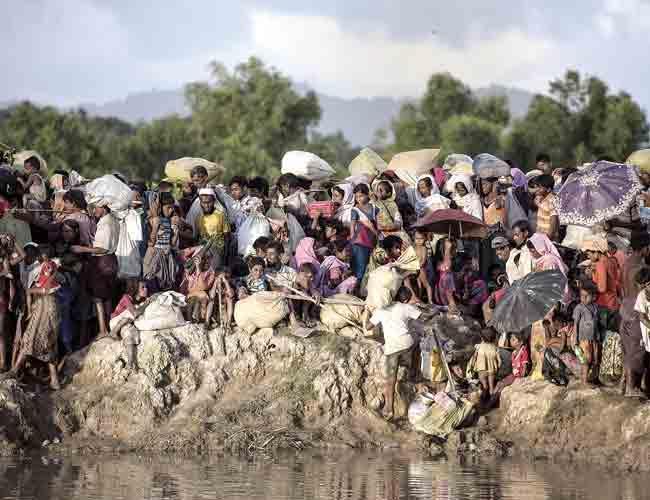US condemns ‘ethnic cleansing’ of Myanmar’s Rohingya
WASHINGTON-Agence France-Presse

The United States on Nov. 22 toughened its stance on Myanmar, accusing the country’s security forces of perpetrating “horrendous atrocities” against the Rohingya that amount to “ethnic cleansing” of the Muslim minority.The United States on Nov. 22 toughened its stance on Myanmar, accusing the country’s security forces of perpetrating “horrendous atrocities” against the Rohingya that amount to “ethnic cleansing” of the Muslim minority.
The statement from Secretary of State Rex Tillerson, who visited Myanmar last week, is the strongest U.S. condemnation yet of the military’s crackdown against the Rohingya, which has triggered a major refugee crisis and escalating global outrage.
“After a careful and thorough analysis of available facts, it is clear that the situation in northern Rakhine state constitutes ethnic cleansing against the Rohingya,” Tillerson said in a statement.
“No provocation can justify the horrendous atrocities that have ensued.”
More than 600,000 Rohingya have fled mainly Buddhist Myanmar for Bangladesh since the military launched a counter-insurgency operation in troubled Rakhine state in late August.
While the army insists it has only targeted Rohingya rebels, refugees massing in Bangladeshi camps have given chilling and consistent accounts of widespread murder, rape and arson at the hands of security forces and Buddhist mobs.
“These abuses by some among the Burmese military, security forces, and local vigilantes have caused tremendous suffering and forced hundreds of thousands of men, women, and children to flee their homes,” Tillerson said.
Myanmar’s response to the crisis will be vital to determining the success of its transition to becoming “a more democratic society,” he added.
Myanmar’s de facto civilian leader Aung San Suu Kyi -- a Nobel peace laureate -- has been criticized by rights groups disappointed with her failure to condemn the crackdown or publicly criticize the military.
Washington says Suu Kyi has a crucial role to play in tackling the crisis but has been careful to focus blame on the army.
On his one-day visit to Myanmar’s capital Naypyidaw, Tillerson said Washington was “deeply concerned by credible reports of widespread atrocities committed by Myanmar’s security forces and vigilantes.”
He urged Myanmar to accept an independent investigation into those allegations, after which individual sanctions could be appropriate.
On Nov. 22, Tillerson said: “Burma’s government and security forces must respect the human rights of all persons within its borders, and hold accountable those who fail to do so.”
Last year, former U.S. president Barack Obama eased long-standing sanctions on Myanmar, reinstating preferential tariffs, to help the country’s transition from being a military-run pariah to civilian government.
The current administration says it does not favor a return to broad economic sanctions.
But a senior State Department official told reporters on Wednesday: “We are looking at additional sanctions targeting individuals responsible for specific acts of violence.”
Myanmar’s army and Suu Kyi’s administration have dismissed reports of atrocities and refused to grant entry to UN investigators tasked with probing alleged abuses.
















